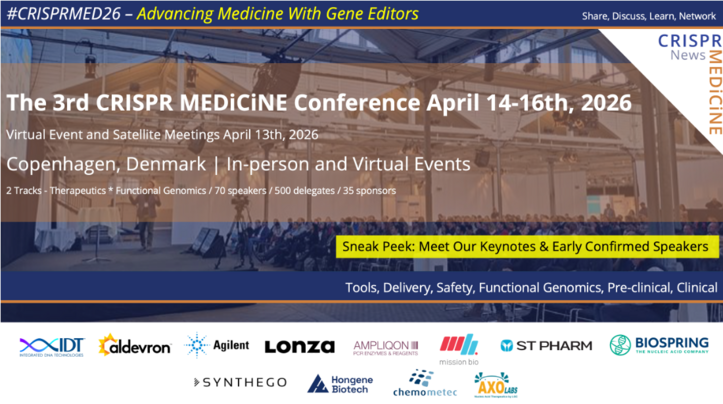Clinical Update: Base-Editing Cholesterol-Reducing Therapy Heads For Clinical Trial
Last week, U.S.-based biotechnology company Verve Therapeutics announced in a press release that its clinical trial application (CTA) to run a human trial for its novel base-editing candidate VERVE-101 had been approved in New Zealand.
VERVE-101 is designed as a single-dose gene-editing medicine that permanently switches off the PCSK9 gene in the liver to reduce low-density lipoprotein cholesterol (LDL-C) levels.
Elevated LDL-C levels lead to clogged arteries in the heart and are a driver of a number of cardiovascular conditions including heterozygous familial hypercholesterolemia (HeFH), a prevalent and potentially life-threatening subtype of atherosclerotic cardiovascular disease (ASCVD).
Adenine base editor delivered via lipid nanoparticles
VERVE-101 comprises lipid nanoparticles (the delivery vehicle) that carry a mRNA molecule encoding an adenine base editor (ABE) as well as a gRNA that specifically targets PCSK9. This cargo is administrered in vivo via blood infusion and it gets taken up by the liver.
Once inside the liver, the gRNA and ABE-encoding mRNA are released, leading to translation of the base editor and its migration, along with the gRNA, to the nucleus, followed by disruption of the PCSK9 gene. In this case, PCSK9 is disrupted by a single A-G nucleotide substitution, which permanently turns off its expression. Permanent disruption of PCSK9 is anticipated to lead to life-long reduced LDL-C levels and a cure for ASCVD.
Pre-clinical data support base-editing as a therapeutic approach for HeFH
Around this time last year, Verve shared pre-clinical data in a Nature publication demonstrating the application of base-editing technology to potently and durably lower blood PCSK9 and LDL-C in cynomolgus monkeys. You can read more about these findings in a company press release here.
In September 2021, Verve shared pre-clinical data for VERVE-101 demonstrating LDL-C reduction in non-human primates, as well as off-target editing analysis that demonstrated no off-target editing across 244 potential sites in human liver cells.
Although VERVE-101 is initially being developed to treat patients with HeFH, the company shared in a press release that it plans to expand clinical development of VERVE-101 to also include patients with established ASCVD not at LDL-C goal on oral therapy.
The VERVE-101 trial
Following CTA approval in New Zealand, the company plans to initiate a first-in-human Phase 1 clinical trial in patients with HeFH in mid-2022.
According to the recent press release, Verve Therapeutics also plans to submit both a CTA in the UK and an investigational new drug (IND) application in the U.S. in the second half of 2022.
Initial clinical data from the VERVE-101 Phase 1 clinical trial is expected to be released in 2023.
Besides VERVE-101, Verve Therapeutics is also developing the ANGPTL3 programme, which is a base-editor programme for homozygous familial hypercholesterolemia (HoFH) as well as for patients with ASCVD who have not achieved goal LDL-C lowering with oral therapy and a PCSK9 inhibitor. HoFH is a rare genetic subtype of ASCVD that is characterised by extremely levels of LDL-C in the blood.
The goal of the ANGPTL3 programme is to develop a therapy that can permanently switch off the ANGPTL3 gene in the liver. ANGPTL3 is a key regulator of cholesterol and triglyceride metabolism.
We will continue to bring updates on VERVE-101 and the clinical trial as they emerge.
You can find all our previous news articles about gene-editing clinical trials here. For a complete overview of CRISPR IND approvals and ongoing gene-editing trials, check out CRISPR Medicine News' Clinical Trials Database.
To get more of the CRISPR Medicine News delivered to your inbox, sign up to the free weekly CMN Newsletter here.
Tags
ArticleClinical News UpdatesFamilial Hypercholesterolemia, FHBase editorsVerve Therapeutics, Inc.Trials
CLINICAL TRIALS
Sponsors:
Suzhou Maximum Bio-tech Co., Ltd.
Sponsors:
Zhejiang University







